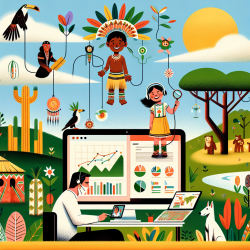Introduction
Improving the health status of indigenous children is a complex yet crucial task, particularly in Brazil, where indigenous communities face significant health disparities. The research article "Indigenous Child Health in Brazil" highlights the importance of culturally appropriate health services and the need for systematic data collection to evaluate the impacts of health interventions on indigenous children.
Key Findings from the Research
The research emphasizes the following points:
- Indigenous children face higher rates of preventable diseases such as malnutrition, diarrhea, and tuberculosis.
- Health programs must consider the social, cultural, and historical contexts of indigenous communities.
- Interventions should be evaluated not only for their outcomes but also for their processes.
- The importance of using ethnicity as an analytical category in data collection and evaluation.
Implications for Practitioners
For practitioners working with indigenous children, this research offers valuable insights:
- Culturally Appropriate Services: Ensure that health services are culturally and socially acceptable to indigenous communities.
- Community Engagement: Engage communities in intercultural dialogue to address health issues within their social and cultural contexts.
- Data-Driven Decisions: Collect and analyze data disaggregated by ethnicity to understand health disparities and evaluate program impacts effectively.
Encouraging Further Research
The research underscores the need for further studies to explore the unique health challenges faced by indigenous children and to develop more effective interventions. Practitioners are encouraged to contribute to this body of research by:
- Conducting studies that incorporate the voices and perspectives of indigenous communities.
- Collaborating with researchers to explore innovative health interventions.
- Advocating for the inclusion of ethnicity as a key variable in health data collection.
Conclusion
The research on Indigenous Child Health in Brazil provides a compelling case for culturally sensitive, data-driven health interventions. By implementing these insights, practitioners can play a pivotal role in improving health outcomes for indigenous children. To read the original research paper, please follow this link: Indigenous Child Health in Brazil.










